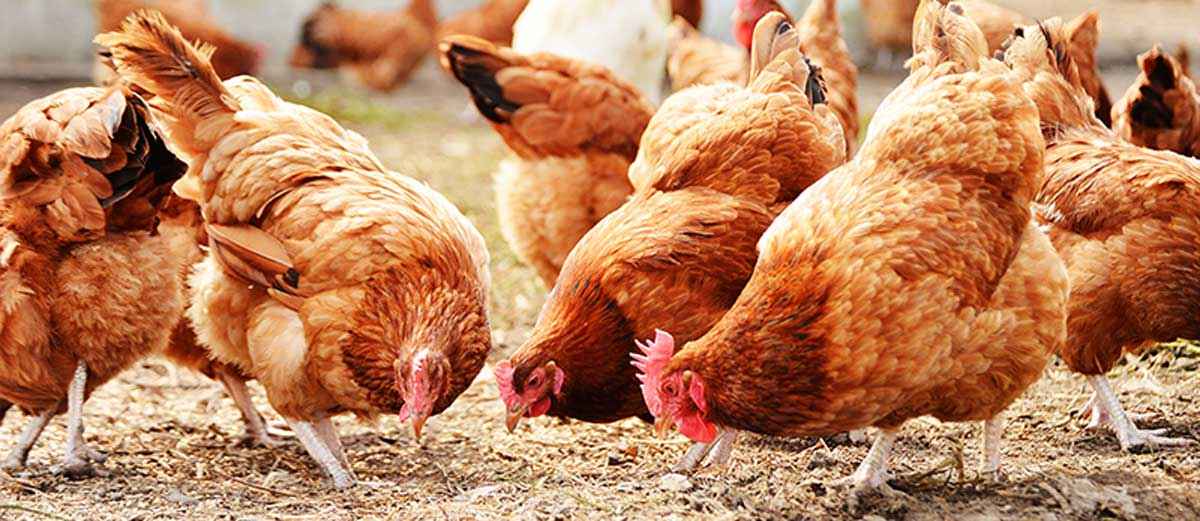Tanzania is a nation of meat lovers, and kuku (chicken) is consumed in large amounts throughout the year.
- 1. Why is poultry farming a profitable business?
- 2. Pick the type of bird you will have
- 3. Decide on the type of poultry farm you want
- 4. Do you have enough money?
- 5. Where will your farm be located?
- 6. What type of housing system will you use for your birds?
- 7. What equipment do you need to buy?
- 8. How will you feed your birds?
- 9. Who do you need to hire?
- 10. Vaccines for the chickens, and regular health check-ups
Even as prices rise, people are still willing to pay to get their poultry fix. For instance, in the past 3-years popular chicken sellers have raised their prices for a 1.3 kg chicken from around TZS 6,000 to TZS 9,000. However, they are still making a profit.

As a result, this makes poultry farming a potentially profitable business to start, as the demand for chicken is always high. And luckily, the market is not fully saturated with sellers – as long as people want to eat chicken then there’s always room for more poultry farms.
Why is poultry farming a profitable business?
Increased awareness of health issues associated with red meat has made chicken consumption a great alternative for many.
Chickens mature very quickly, meaning the business has the potential to generate high returns on your investment in a short period of time.
Not just households consume chickens, but a great number of restaurants, hotels, and other food services in Tanzania usually have chicken on their menu
So if you’re interested in making some money and starting your own poultry farm. Here are the steps you need to take:
1. Pick the type of bird you will have
While most people have chicken farms, there are several types of birds you can specialize in. These include:
Domestic fowl
Duck
Turkey
Guinea fowl
Goose
Quail
However, for now, we will just focus on domestic fowl (regular chicken).
2. Decide on the type of poultry farm you want
There are a number of things you can do as a poultry farmer, these include:
Breeding chickens for sale
Producing eggs for sale
Producing chicken meat for sale
Producing poultry feed (chicken food) for sale
Processing eggs and chicken meat for sale
The niche you pick will be determined by your capital, and the demand in your area.
So for instance, chicken meat and eggs have high demand in Dar es Salaam. However, it’s a more saturated market than in many other areas, so if you have enough money then processing eggs and chicken meat or even offering refrigerated storage facilities and transport could be a more lucrative option.
So it’s important to do your research (ask other poultry farmers) on what type of poultry farming is profitable in your area and how much it will cost you to start. However, for this article, we will focus on poultry farming for egg and meat production.
3. Do you have enough money?
The size of your poultry farm will depend on your capital. In general:
A small farm will need capital of about TZS 1.5 mill – TZS 3 mill
A medium sized farm will need capital of about TZS 4 mill – TZS 10 mill
A big farm will need capital of about TZS 20 mill and more.
4. Where will your farm be located?
When picking a location, consider:
Is the land affordable?
Are the costs of transportation of eggs and meat low? Is it close to the market and your buyers?
Do too many people live in the area? This may cause problems because of the bad smell from the poultry farm.
Is the area safe? Does it have a history of theft or wild animals that may kill the chickens?
Instead of finding a new plot of land, some people build their chicken farm in their own backyard. This greatly reduces costs, but it also requires some consideration, including:
The constant bad smell of chickens and chicken droppings that will be in your backyard. This may also bother your neighbors.
Are there any land regulations in your area against farming animals on your property? You should consult your district’s office (serikali za mtaa) to verify if any additional steps need to be taken before you start your farm.
5. What type of housing system will you use for your birds?
How you house your birds is very important to the profitability of your farm. The more elaborate the system is, the more successful your farm will be. There are three main types of housing systems:
Free-range: This is the old school poultry farming system where you allow the chickens to roam freely outside and feed them regularly. While this is considered the most humane way to raise chickens, it is not the most profitable as there are a lot of risks involved including;
Predators may harm chickens
People may still chicken
Chickens may get lost
It’s hard to identify sick chickens so diseases may spread quickly
More difficult to monitor growth of chickens
However, this system is easy to set up and afford.
Chicken Litter/Deep Litter System: This is the most popular housing system for small and medium sized chicken farms. The chickens are put in an enclosed area (with either a wired fence or concrete wall), and wood shavings or sawdust are spread on the ground as bedding for the chickens.
This system enables farmers to manage a large number of chickens with more security. However, like the free range method, it also allows for diseases to spread quickly as it’s difficult to single out sick birds.
Battery Cage: This is a very common system for large-scale poultry farmers, as it has the least amount of risk involved – though it can get quite expensive. Chickens are placed in small metal cages containing a feeding and water rack. A small number of chickens are in each cage, and they also have room for laying eggs. Because of the separation the chickens get, it is easy to spot chickens which are ill or not producing eggs.
6. What equipment do you need to buy?
In addition to constructing the house for the birds, you will need a decent amount of equipment and facilities for your poultry farm. This includes:
Drinkers
Feeders
Nests
Perches
Lighting system
Crates
Incubator
Waste disposal system
Egg tray
Heaters or brooders
Cages and coops
Find the equipment you need, here.
7. How will you feed your birds?
Just like humans, in order to grow and be healthy, birds must eat. In fact, feeding your birds will take up the majority of your costs. What you need to figure out is, will you buy their food or make it yourself?
Making your own poultry feed requires more capital, however, over time it lowers costs than continuously buying feeds from elsewhere. Moreover, it can be another source of income if you also sell your poultry feed to other farmers. However, this may be a more feasible method for bigger farms with more capital.
All in all, your decision will depend on researching each option and figuring out if the costs will yield you the benefits you want.
8. Who do you need to hire?
No matter how small the poultry farm is, unless it’s your full-time job, you will need to hire some staff to help you run things. They should include:
Manager/Accountant: This person will oversee the daily running of your business, calculate and manage costs, sales, and overall profits.
Farm Hand: Monitor the state of the chickens, feeding times, growth and habits.
Security Guard: Protect your farm against theft of chickens, money or equipment.
Marketer: You can do this job, but essentially you need to find ways to market your farm online on directories like ZoomTanzania, social media and offline with flyers, street advertisements and more.
9. Vaccines for the chickens, and regular health check-ups
As your farm grows, it’s important to consult a veterinarian and get your chickens vaccinated to prevent disease epidemics from spreading amongst your flock, and even worse, to your customers.
Remember, the number one factor that clients care most about is not your price but the the health of your chickens and freshness of your eggs and meat. (Though a competitive price is always good for business).
A business that pays off
Starting a chicken farm requires some dedication but once the profits start coming in you will be glad you did it!
